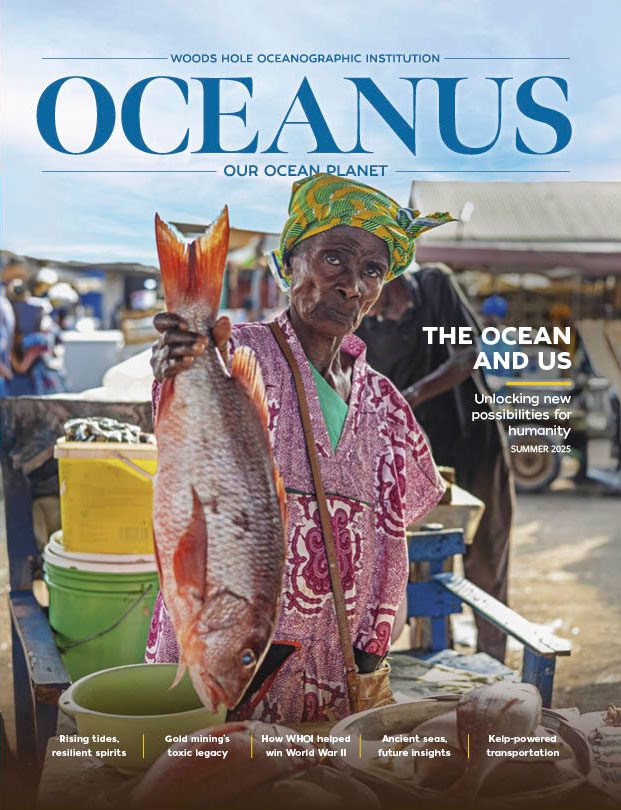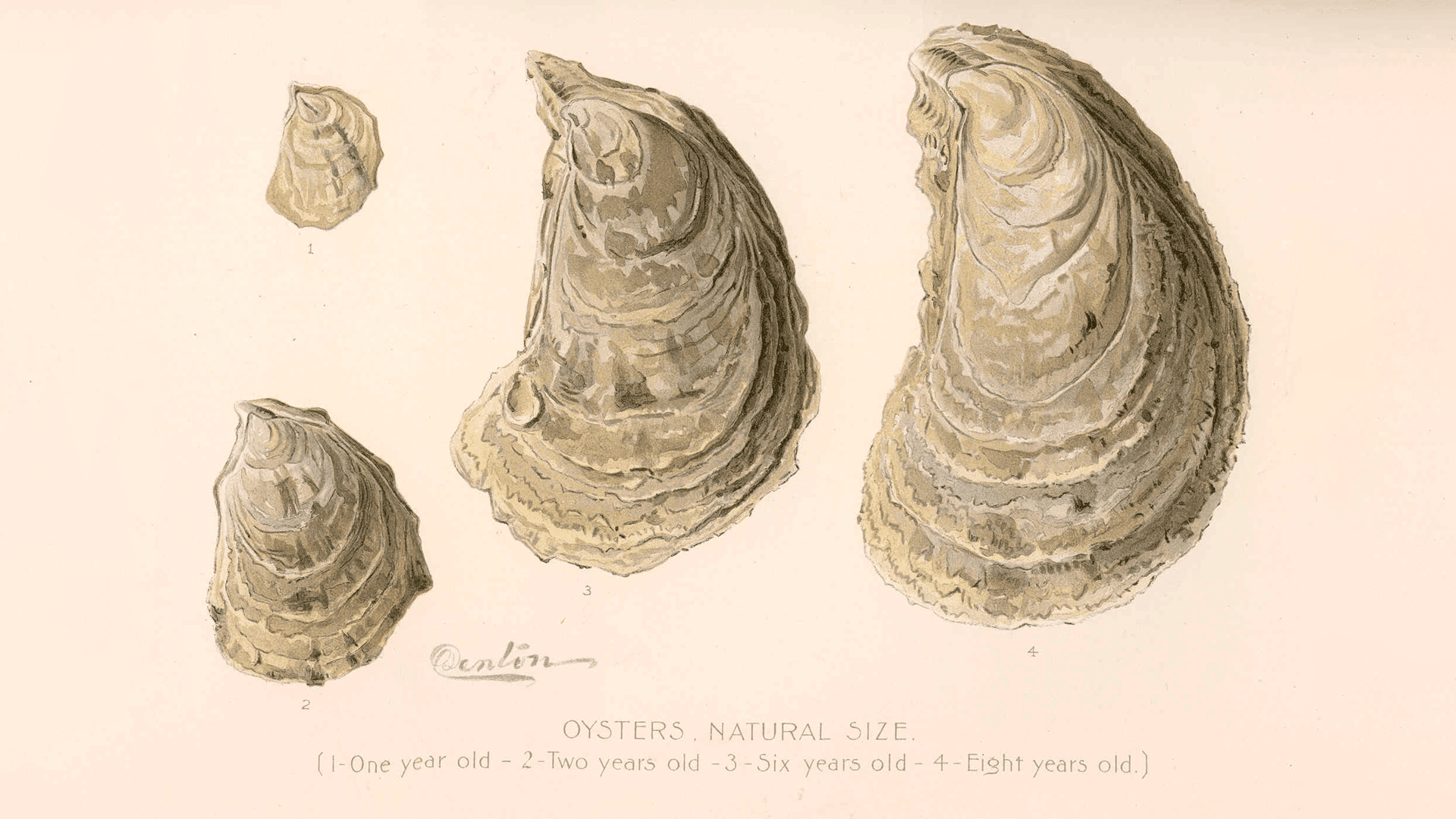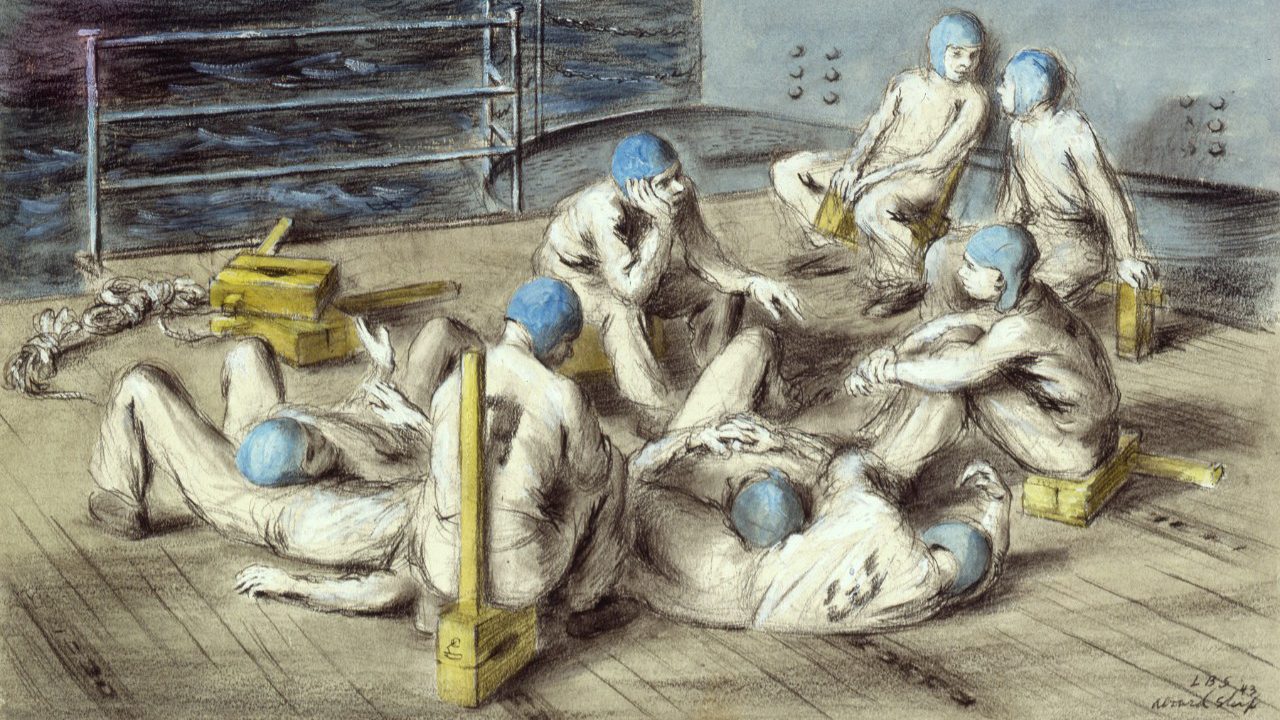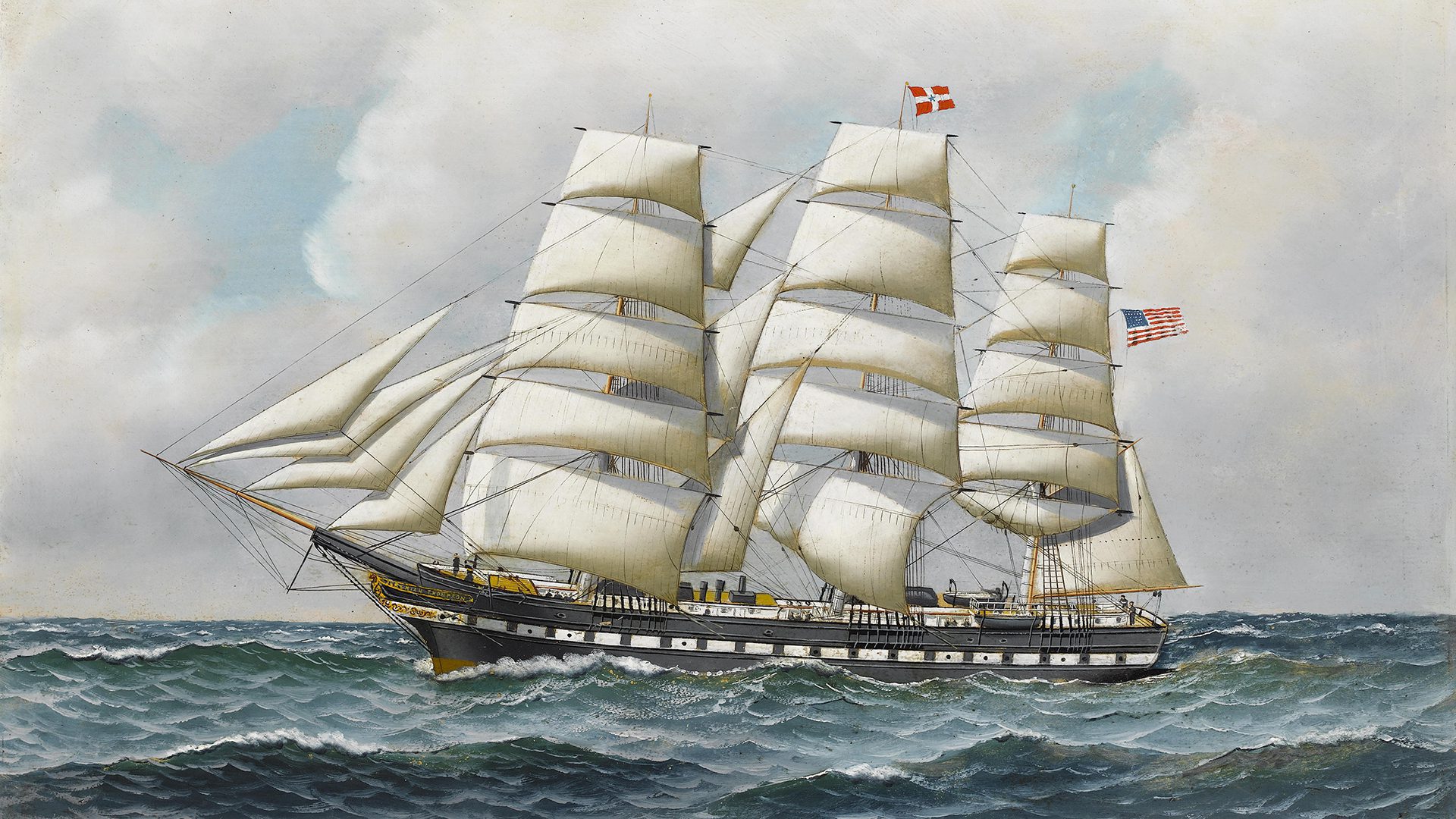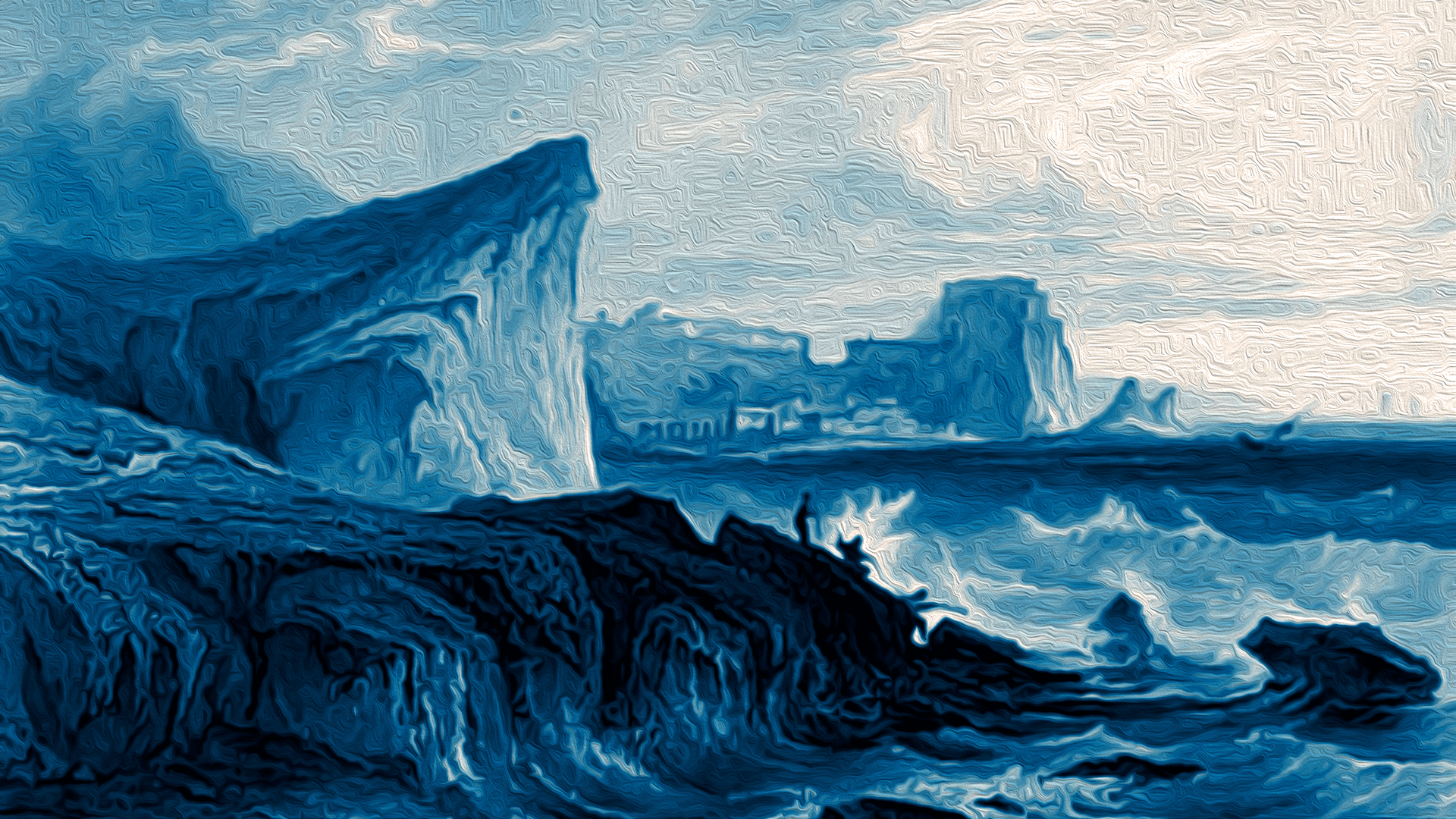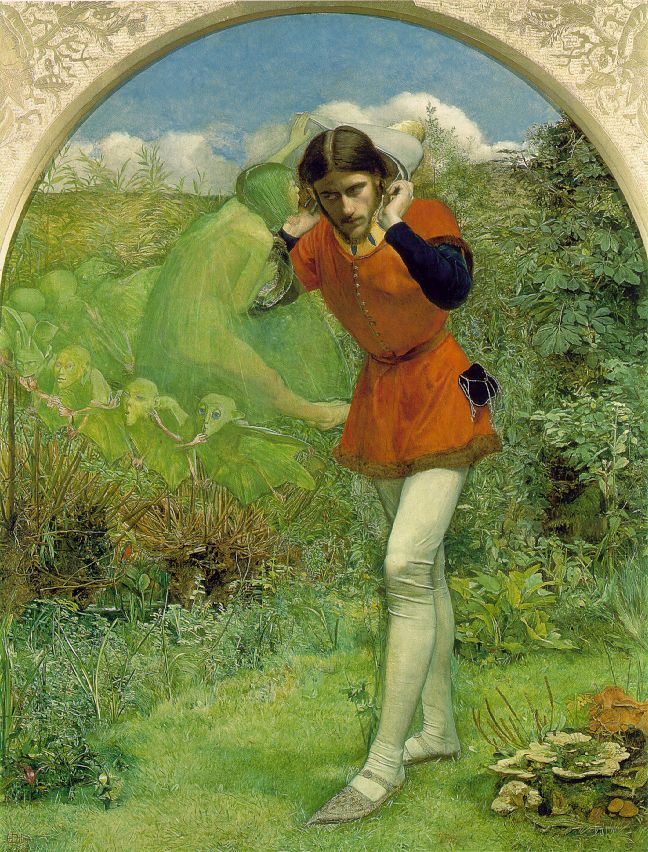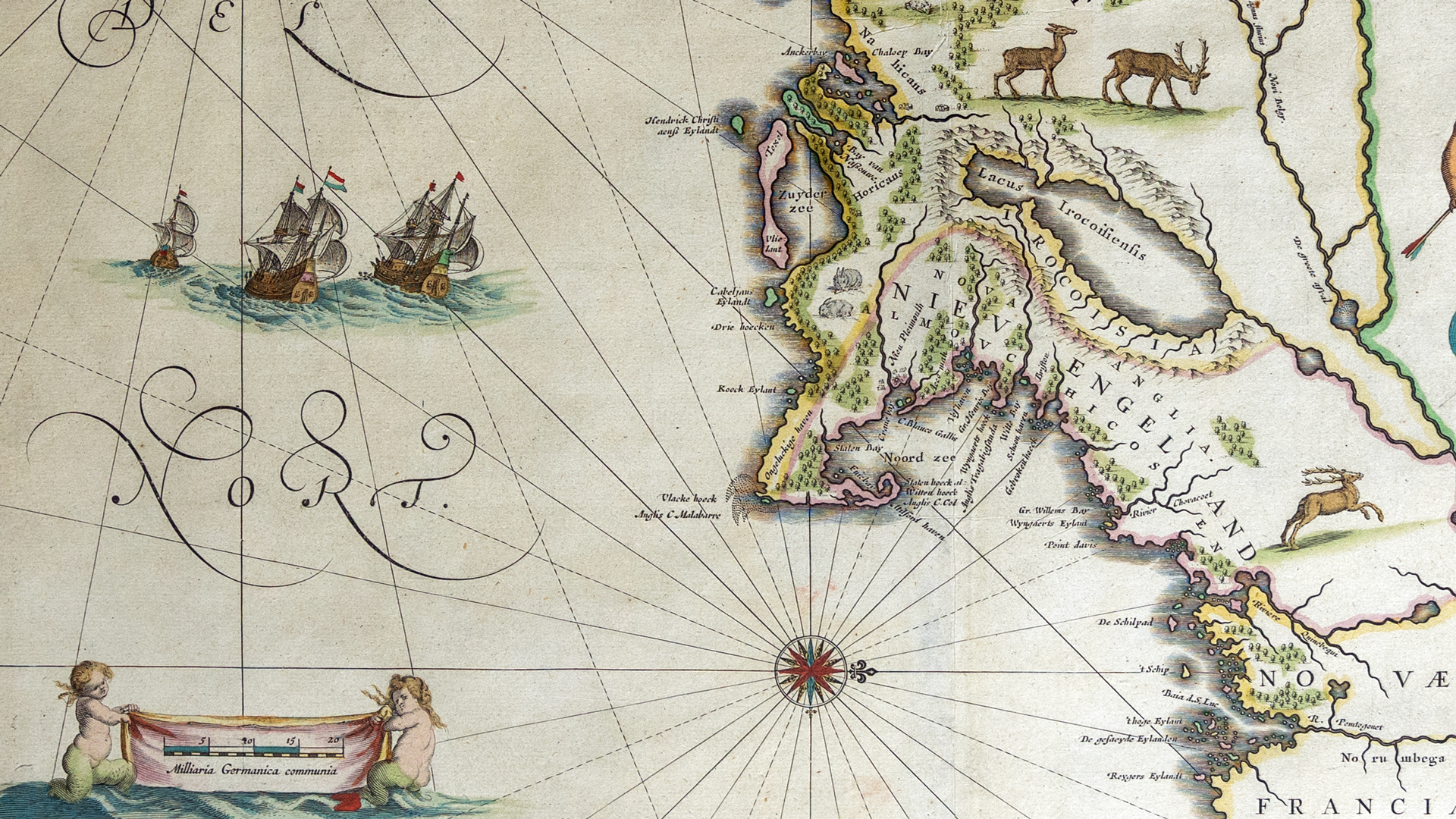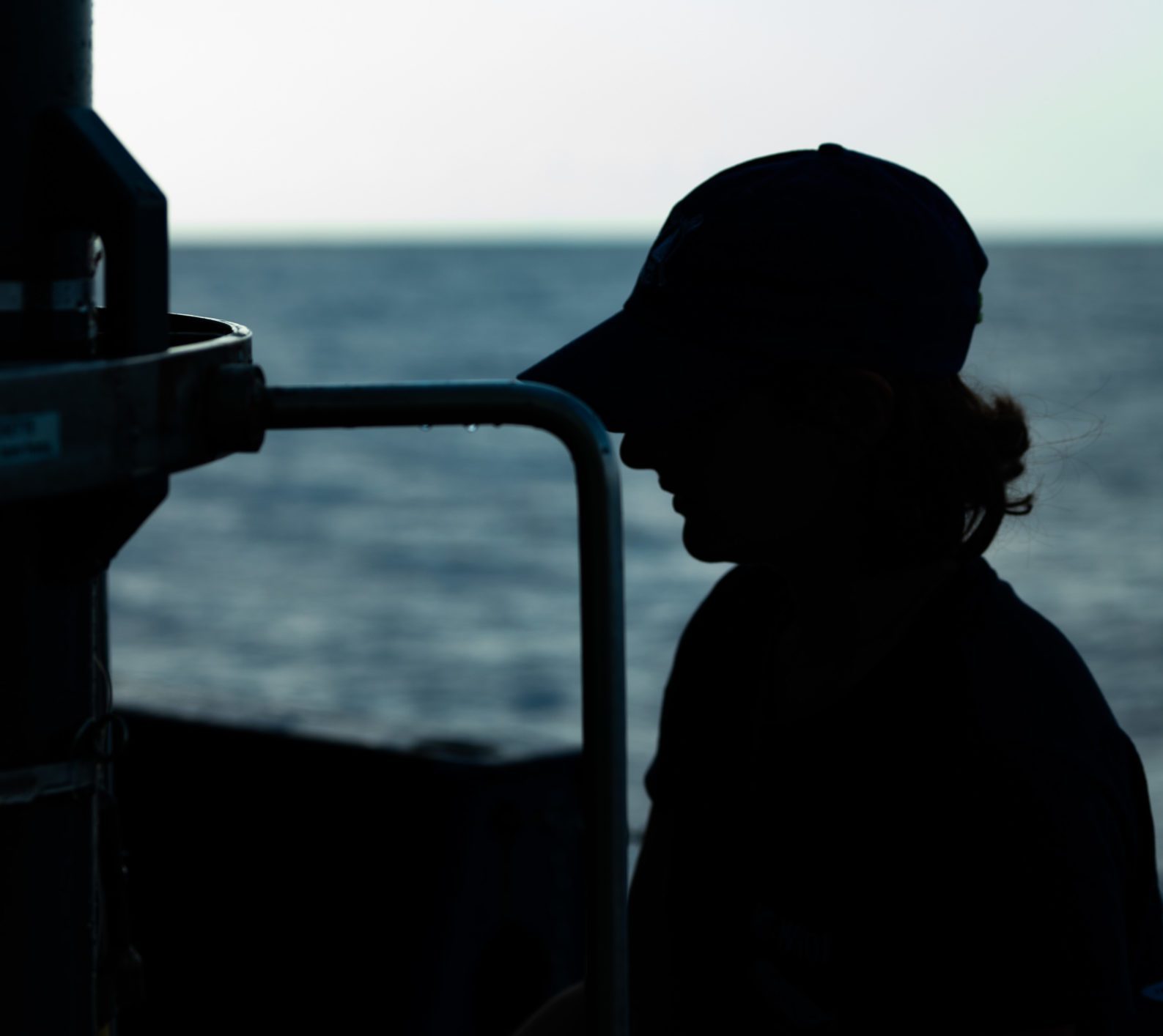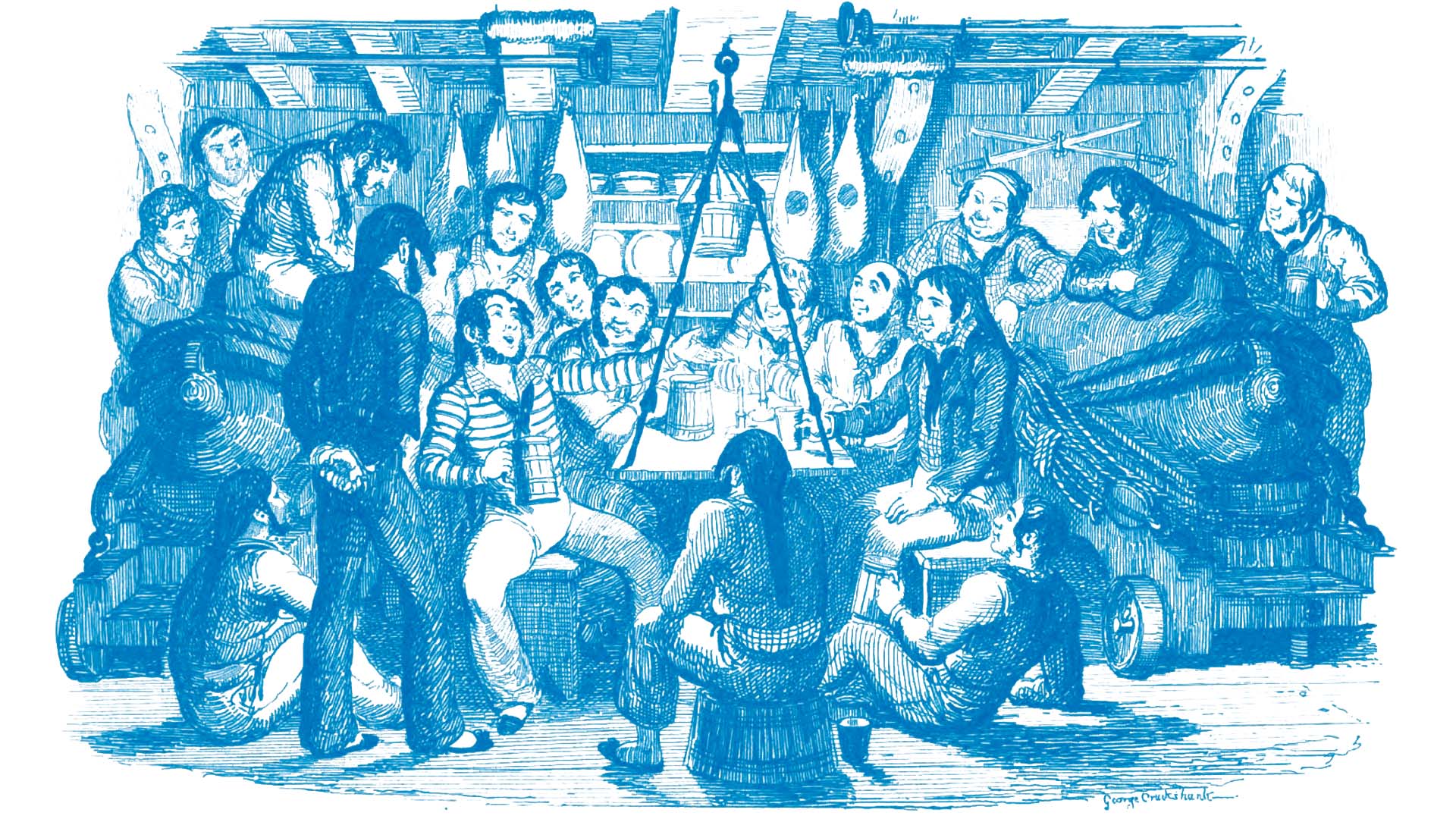
Five idioms for ocean lovers
Do these ocean idioms come from seafaring history or not? The world is mine oyster, scuttlebutt, taken aback, between the devil and the deep blue sea, sea change.
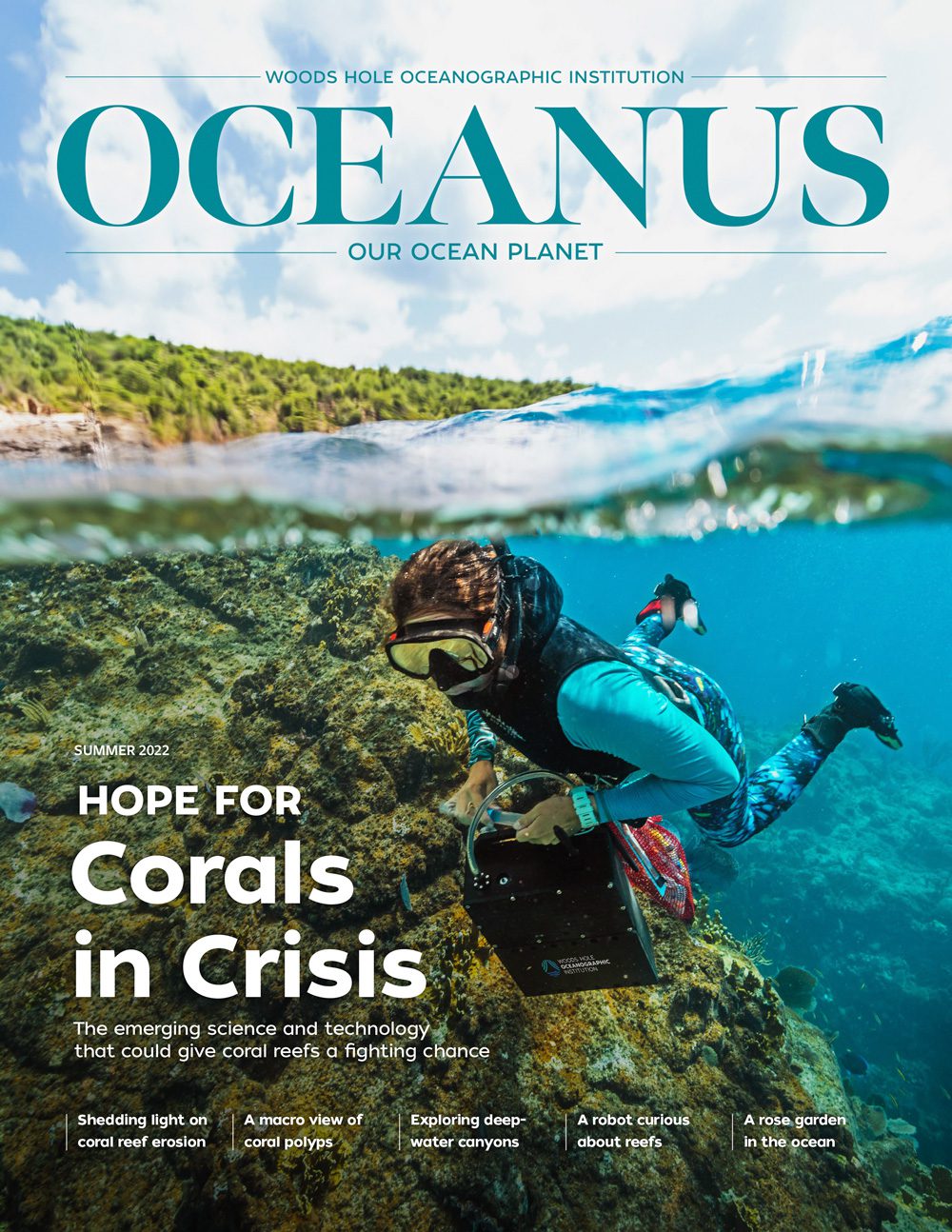 This article printed in Oceanus Summer 2022
This article printed in Oceanus Summer 2022
Estimated reading time: 4 minutes
References to the ocean saturate English. Some are drawn from maritime history. Others originated on land and only appear to have a salty connection. In either case, we think sea-speak seasons any conversation. Here are five idioms to bring the ocean to mind.
"Oysters," Second Annual Report of the Commissioners of Fisheries, Game and Forests of the State of New York, Printed by Wynkoop Hallenbeck Crawford Company, 1896.
The world is mine oyster
"I can achieve whatever I want in life"
This familiar phrase comes from Shakespeare's The Merry Wives of Windsor. The troublemaker Falstaff refuses to lend money to his associate Pistol, and Pistol responds, "why, then the world's mine oyster, which I with sword will open." The sword gives the expression a more forceful connotation than its current use, which often appears as, "The world is your oyster!" on congratulatory greeting cards and the like.
Oysters certainly meant something different to Shakespeare's original audience than they do to us today. Archeologists excavating the sites of London's Rose and Globe theatres found great quantities of oyster fragments in the cheapest viewing areas. To ordinary theatregoers, oysters were kind of like popcorn.
But, like many of Shakespeare's sayings, and like language itself, what oysters symbolize has migrated. Oysters are now considered a luxury food and come with tasting notes, wine pairings, and caviar. And in waters too tainted to grow edible shellfish, oysters are heroes of restoration, with adult oysters capable of filtering nitrogen and sediment out of 50 gallons of water in a single day.
"A plane handling crew, at ease in the lee of an aircraft carrier's island superstructure, participate in the shipboard pastime of passing along the latest scuttlebutt while awaiting return of the squadrons." Caption from www.history.navy.mil "Scuttlebutt Session," by Lawrence Beall-Smith, 1943.
Scuttlebutt
"To gossip"
A scuttlebutt was a cask of drinking water on a ship and became Navy slang for what we know today as watercooler conversation. The term has literal origins, as the cask was called a butt, and scuttle referred to the hole for tapping it. "A visit to the scuttled butt was a good opportunity for sailors to exchange gossip, rumors, or chatter," says The Seafaring Dictionary, "and these activities soon took on the slang name of the water cask itself."
An example of a square-rigged tall ship that could be literally taken aback. "The American full-rigger Jeremiah Thompson' at sea," Antonio Jacobsen, 1910.
Taken aback
"To be surprised"
This expression for being shocked and disconcerted doesn't appear to have a drop of seawater in it, so it may surprise you that it comes from the physics of sailing. When a square-rigged tall ship sailing with the wind was suddenly assaulted by a squall from another direction, the helmsman had to act quickly or else the ship could stop or move backwards. It could even cause the sails to be blown back against the mast and snap. Disconcerting indeed!
Between the devil and the deep blue sea
"Caught in a tight spot"
Theories abound for how this idiom, which describes being torn between two equally perilous choices, made its way into seafaring speech. One defines "devil" as a seam on a ship hull that was sealed with hot pitch and notoriously difficult to reach. Another suggests a reference to keelhauling, the harsh practice of binding a sailor and dragging him under the ship's barnacle-encrusted keel for punishment. Some language scholars contend that the phrase didn't originate at sea at all; they point to the adaptation of a Latin proverb. In 1621 a cleric translated "a fronte praecipitium, a tergo lupi," from Latin into English as "betwixt the [devil] and the dead sea." A more literal translation of the Latin would be "a precipice in front, wolves behind." In both renderings, the meaning holds.
Sea change
"A marked transformation, particularly into something finer"
"Ferdinand lured by Ariel" by John Everett Millais, 1850.
This term comes from the song of the sprite Ariel in Shakespeare's play The Tempest, in which Ariel tries to deceive Ferdinand that his father has drowned.
"Full fathom five thy father lies:
Of his bones are coral made:
Those are pearls that were his eyes:
Nothing of him that doth fade
But doth suffer a sea-change
Into something rich and strange."
The use of sea change in our speech is generally considered to be positive and emphasizes transformation "into something rich and strange." But one scholar argues that this is a diminished understanding in the context of Ariel's song. "This sea change, a mysterious transformation into rich or rare substances of the sea, is a metaphor of redemption through death, one of the great themes of the play," writes B. A. Phythian in A Concise Dictionary of Phrase and Fable.
Ambrogi, Stefano. "Oysters - the Tudor Version of Cinema Popcorn." Reuters, Thomson Reuters, 29 Jan. 2010, https://www.reuters.com/article/us-shakespeare-snacks/oysters-the-tudor-version-of-cinema-popcorn-idUSTRE60S4JO20100129.
Fishman, Joanne A. "Course Is Plotted on Sea Language." The New York Times, The New York Times, 21 Dec. 1975, https://www.nytimes.com/1975/12/21/archives/course-is-plotted-on-sea-language.html?smid=url-share.
Isil, Olivia. When a Loose Cannon Flogs a Dead Horse There's the Devil to Pay: Seafaring Words in Everyday Speech. 1996.
"Meaning and Origin of Nautical Terms." Meaning and Origin of Nautical Terms, An Official Website of the U.S. Navy, https://www.history.navy.mil/content/history/nhhc/browse-by-topic/heritage/speak-like-a-sailor/nautical-terms-and-phrases-their-meaning-and-origin.html.
"Oyster Fact Sheet." Chesapeake Bay Foundation, https://www.cbf.org/about-the-bay/more-than-just-the-bay/chesapeake-wildlife/eastern-oysters/oyster-fact-sheet.html.
T., Blackmore David S. The Seafaring Dictionary: Terms, Idioms and Legends of the Past and Present. McFarland & Co., 2009.
Tréguer, Pascal. "The Authentic Origin of 'between the Devil and the Deep Blue Sea'." Word Histories, 20 June 2020, https://wordhistories.net/2017/09/29/between-devil-and-sea/ and "The Shakespearean Origin of 'Sea Change'." Word Histories, 19 August 2020, https://wordhistories.net/2017/12/08/sea-change-origin/
